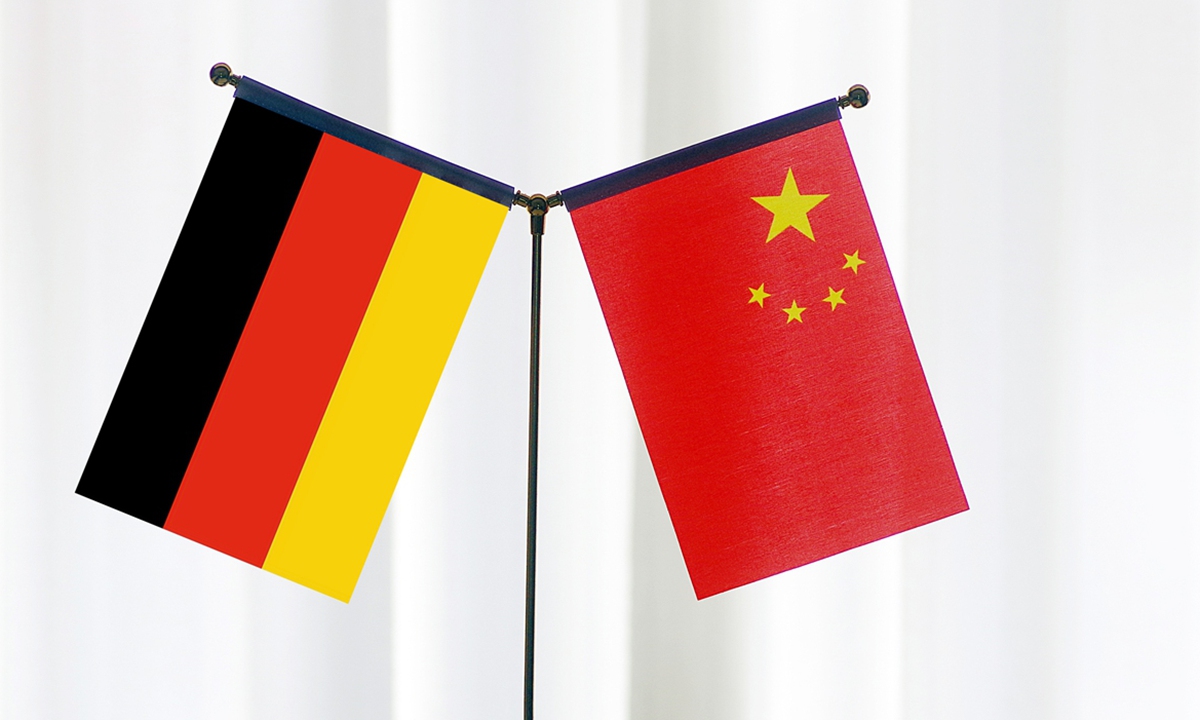China Germany Photo: CFP
German Chancellor Olaf Scholz will reportedly visit China with a business delegation in April, which Chinese experts said shows the great importance Germany attaches to China’s constructive role in both economic recovery and international affairs.
According to German media outlet FAZ newspaper and Reuters, Scholz will travel to China from April 15 to 16, and the Asia-Pacific Committee of German Business and the BDI Federation of German Industries have sent invitations to companies to join him.
A German government spokesperson declined to comment on the potential trip, and there has been no response from the Chinese Foreign Ministry on the matter.
Scholz’s last official visit to China was in November 2022, when he was accompanied by representatives from 12 major German companies. Scholz met with Chinese President Xi Jinping in Beijing, and the two leaders agreed on enhancing cooperation and maintaining dialogue, rejecting decoupling and bloc confrontation, vowing to further expand cooperation.
The two leaders also held a video meeting in November 2023, during which Xi noted that China and Germany, both responsible major countries, should not only develop bilateral relations and serve as examples of win-win cooperation, but also defend the international order and multilateralism, and work together to address global challenges.
China remained Germany’s biggest trading partner for the seventh year in a row in 2022 with 298 billion euros ($321.3 billion) in trade volume, official data shows. That momentum continued in 2023, based on preliminary official figures, according to Reuters.
According to Wang Yiwei, director of the Institute of International Affairs at the Renmin University of China, the German economy is in serious trouble and faces industrial and capital outflows, and the Scholz government needs some achievements to dispel opposition.
The auto industry is a pillar of the German economy, and losing the Chinese market would be disastrous, said Wang, noting that Germany lags behind in new manufacturing, especially in digital and green restructuring and upgrading, which makes cooperation with China crucial.
The International Monetary Fund predicts Germany will be the only G7 economy that shrank in 2023, and at 0.9 percent, growth is expected to remain well below the average of 1.4 percent for advanced economies in 2024, according to a Reuters report.
In the past few months, China has released a series of market-opening measures and favorable policies, which Germans have seen and do not want to miss, Cui Hongjian, a professor with the Academy of Regional and Global Governance at Beijing Foreign Studies University, told the Global Times.
Despite the EU launching an anti-subsidy probe into electric vehicles (EVs) from China, Cui said Germany and Beijing should strengthen coordination on this issue, as the two countries have already forged a “symbiotic relationship” in the EV industry chain.
Schloz’s possible China visit in 2024 was revealed during the German chancellor’s ongoing trip to Washington, in which he is expected to discuss the Russia-Ukraine conflict, NATO’s future, and the Gaza Strip crisis with US President Joe Biden, according to media reports.
Chinese Foreign Minister Wang Yi is expected to attend the Munich Security Conference, which will take place in the southern German city on February 16 to 18.
By seeking a China trip after the interaction between the leaders of Germany and the US, it is obvious that Germany is struggling to find a balance between Beijing and Washington, Cui said.
Germany will have to strengthen its relations with the US, but it will not bet all its chips on Washington, Cui said.
“On Middle East affairs, climate and other hot issues in the world, Germany attaches great importance to China’s constructive role,” said Wang Yiwei.
More importantly, with the possibility of Donald Trump returning to the White House, Germany, as the leader of European integration, also needs to make moves in advance to offset the uncertainty brought by his possible return and seek detente with China, said Cui.
Experts noted that as 2024 also marks the 60th anniversary of China-France diplomatic ties, China-EU relations, led by the easing of China-France and China-Germany relations, may be relatively smooth. However, the China-EU relationship will be balanced on a dynamic basis, with both positive and negative factors co-existing.
